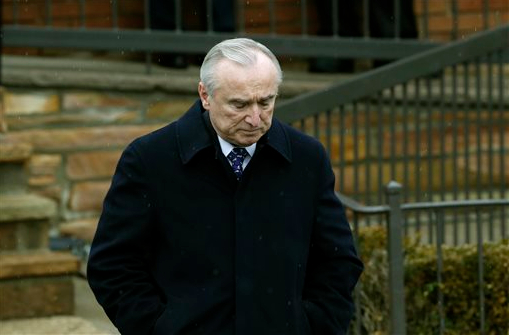Arrest stats point to New York Police Department slowdown

Despite efforts by New York City officials to tout a dip in serious crime, another statistic is getting more attention — a steep decline in the number of arrests across all five boroughs in the two weeks since two police officers were shot dead in their patrol car in Brooklyn.
The totals suggest that a rumored work slowdown has taken hold amid discord between the rank and file and Mayor Bill de Blasio, and raise questions about what impact it could have on the city’s crime rate.
Patrick Lynch, head of the powerful Patrolmen’s Benevolent Association, insisted Tuesday that the union was not sanctioning a labor action. He pointed to a shootout during an armed holdup late Monday that left two plainclothes officers wounded as proof that it was business as usual at the nation’s largest police department.
